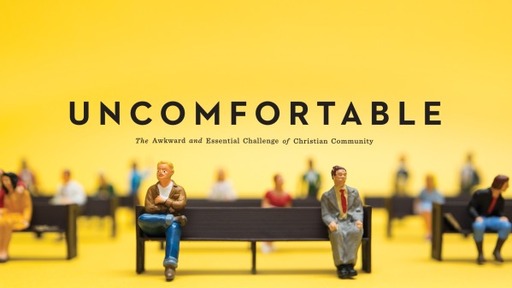Uncomfortable Function

Intro
Message
we have both narrowed what worship means in a church setting (basically singing) and also widened it to the point of meaninglessness outside of church (e.g., “I worship by doing Pilates
if Christians only ever worshiped when their hearts were “in it” fully, worship would rarely happen. Sometimes “going through the motions” is precisely what we must do. The bodily motions of worship—singing, raising your hands, kneeling, closing your eyes—shape us significantly, even when we don’t feel like they are.
The abuse of God’s creation should grieve Christians and spur us to action, not for selfish reasons or tree-hugging reasons, but out of love for the Creator and obedience to his Genesis commands to take good care of the earth, his property.
concern for the protection of nature is “incompatible” with the justification of abortion or indifference about human trafficking,4 and he suggests that a healthy respect for the created world includes a respect for the complementarity of male-female gender that is part of that creation. A robust Christian ethic of creation care is not just about combating climate change or reducing carbon footprints; it is also about defending the preciousness of life, marriage, and family as good gifts of God’s created order.
One of the most uncomfortable aspects and yet crucial signs of healthy mission is the presence of hard goodbyes. God is a sending God. He sent Jesus to earth. Jesus sent out his disciples. Disciples send out other disciples. Churches are always sending, multiplying, and planting. This keeps the gospel moving and expanding, but it comes with a cost.
Kevin DeYoung says,
In the grand scheme of things, most of us are going to be more of an Ampliatus (Rom. 16:8) or Phlegon (v. 14) than an apostle Paul. And maybe that’s why so many Christians are getting tired of the church. We haven’t learned how to be part of the crowd. We haven’t learned to be ordinary. Our jobs are often mundane. Our devotional times often seem like a waste. Church services are often forgettable. That’s life. . . . Life is usually pretty ordinary, just like following Jesus most days. Daily discipleship is not a new revolution each morning or an agent of global transformation every evening; it’s a long obedience in the same direction.
Close
Christians should embrace rather than be embarrassed by their abnormal status and strange practices; not for the sake of being weird, but for the sake of the world.
But if the church is to thrive in the twenty-first century, she must recover the jarring and profound paradoxes of what Christ calls her to embody: a kingdom where last is first, giving is receiving, dying is living, losing is finding, least is greatest, poor is rich, weakness is strength, serving is ruling.
